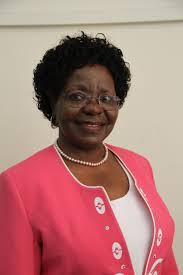By Byron Mutingwende
A showcase market held in Harare revealed that women have improved their entrepreneurship skills and are determined to leave a mark in business. Organised by the Women’s Farming Syndicate (WFS), the Women’s Showcase Market from March 3 to 4, 2017 at Long Cheng Plaza in Harare, was a platform for women to expose their products and services to the market.
In a speech read on her behalf, Sithembiso Nyoni, the Minister of Small to Medium Enterprises Development bemoaned the fact that the lack of access to markets was one of the major challenges affecting the development and growth of SMEs.
“Such events are critical in that they avail an opportunity for women to expose their products to the market, network with other SMEs, link with other service providers and benchmark their products and services with other products on the market,” Nyoni said.
Nyoni was impressed by the quality of products on display and encouraged the women exhibitors to continue improving the quality of their products to enable them to be competitive on the local and export market. She said that the model adopted by the Women’s Showcase dovetailed with the Ministry’s thrust of promoting the development and growth of SMEs.
“Let me assure you that my ministry will continue to nurture and support you in partnership with other stakeholders through various strategies which include business management training, access to technology, market access and access to work space,” Nyoni said, adding that it was a desire for women to grow from being small entrepreneurs to large companies.
To grow the SME sector, there is a need for the women to work with the government, the private sector and development partners.
The Women’s Farming Syndicate, through its Director, Tsitsi Valerie Machingauta, called on stakeholders to support its initiative through capacity building, market access, linkages, availing affordable capital and workspace to those entrepreneurs to enable them to meaningfully contribute to the economic development of the country.
Machingauta is a tireless advocate for women’s empowerment and an afro-processing expert. She is the founder of the Women’s Farming Syndicate, a social enterprise headquartered in Domboshava.
WFS was established in 2012 with its main thrust in agribusiness. Its main aim was to empower women through value addition, capacity building, access to sustainable markets and affordable lending. It has developed a number of programmes to support women. Firstly, the value addition encourages women to add value to their produce and sell their products under one brand.
“Currently, there are more than 30 different product lines. Products are being exported and sold locally at farmers’ markets and women’s showcase markets. The Women’s Showcase market creates a platform for knowledge exchange, employment creation, food security, women’s economic empowerment, revival of rural economies, foreign currency generation and quantification of women’s contribution to economic development,” Machingauta said.
Angeline Mikiri, the Ambassador of women’s entrepreneurs in Zimbabwe said that it was important to promote development through entrepreneurship among women.
“There are a number of policy recommendations to empower women. The education policy should be designed in a manner that expands the economic opportunities for women. Poverty eradication programmes should specifically address the needs and the problems of women at extreme level. There is a need to encourage women entrepreneurship. All banks and financial institutions should be asked to provide one fifth of their investment for women owned enterprises. Special training courses should be offered for women entrepreneurs to improve their skills. The government, banks, financial institutions and wealthy individuals should provide interest-free consumption credit for vulnerable women.
“In addition, special assistance is to be provided to specially disadvantaged groups like women in extreme poverty, destitute women, women in conflict situations, women affected by natural calamities, women in less developed regions, the disabled widows, elderly women, single women in difficult circumstances, women heading households, those displaced from employment, migrants, women who are victim of material violence, deserted women and prostitutes,” Mikiri said.
She added that women from an important segment of the labor force and the economic role-played by them cannot be isolated from the framework of development.
Manar Alagha, the First Secretary at the Embassy of the State of Palestine in Zimbabwe said that the role of women as business owners is gradually increasing all over the world.
“Women entrepreneurship development is the instrument of women empowerment. Empowerment leads to self-fulfillment and women become aware of where they are going, what their position is in the society, their status; existence and rights; and women are becoming more empowered, personally and economically through business ownership,” Alagha said.






